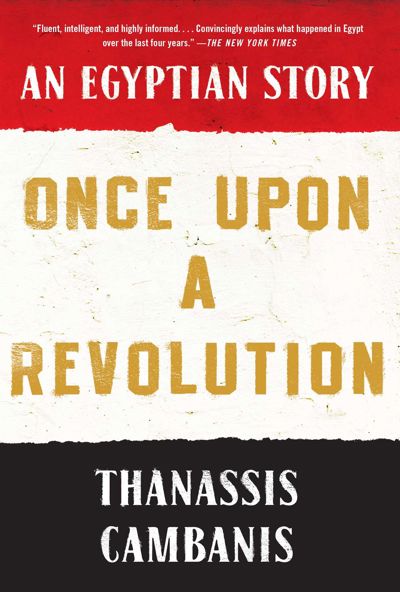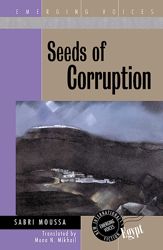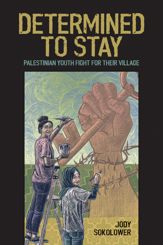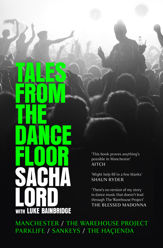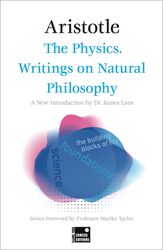“It is one of the many strengths of Thanassis Cambanis’s fluent, intelligent, and highly informed book, Once Upon a Revolution, that he convincingly explains what happened in Egypt over the last four years. It should be read by anybody perplexed by how Egypt’s apparent entry into a brave new democratic world was ultimately defeated. This account has the vividness and readability of eyewitness reporting combined with an unsentimental and perceptive judgment about where the opponents of autocracy went wrong.”
Description
Award-winning journalist Thanassis Cambanis tells the “wonderfully readable and insightful” (Booklist, starred review) inside story of the 2011 Egyptian revolution.
Cambanis brings to life the noble dreamers who brought Egypt to the brink of freedom, and the dark powerful forces that—for the time being—stopped them short. But he also tells a universal story of inspirational people willing to transform themselves in order to transform their society. He focuses on two pivotal leaders: One is Basem, an apolitical middle-class architect who puts his entire family in danger when he seizes the chance to improve his country. The other is Moaz, a contrarian Muslim Brother who defies his own organization to join the opposition.
These revolutionaries had little more than their idealism with which to battle the secret police, the old oligarchs, and a power-hungry military determined to keep control. Basem wanted to change the system from within and became one of the only revolutionaries to win a seat in parliament. Moaz took a different course, convinced that only street pressure from youth movements could dismantle the old order. Their courageous and imperfect decisions produced an uprising with one enduring outcome: No Arab leader ever again can take the population’s consent for granted.
Once Upon a Revolution is “a welcome addition to the literature on Egypt’s uprising” (Library Journal). Featuring exclusive and distinctive reporting, Thanassis Cambanis’s “fluent, intelligent, and highly informed book…convincingly explains what happened in Egypt over the last four years” (The New York Times Book Review).
Reviews
"Cambanis has achieved something altogether remarkable here. Through tracking the thoughts and actions of two rivals in the Egyptian revolutionary movement, complemented by his own acute on-the-street observations, he has produced an account of the rise and fall of the Egyptian Revolution that is at once gripping, illuminating and wise. Once Upon a Revolution is essential reading for anyone seeking to understand the political and religious crosscurrents currently roiling the Middle East, or who wishes to gain an insight into where the region might be headed next. It is also that rarest of ‘compulsory’ books: one that is a pleasure to read."
“A comprehensive, straightforward—and sympathetic—accounting of the Egyptian revolution. . . . A cautionary and instructive tale that should be required reading for would-be revolutionaries everywhere, Wall Street Occupiers and Hong Kong umbrella-holders alike, on the extent to which the powerful will go to prevent change and the pitfalls of decentralized revolutionary movements.”
“In Once Upon a Revolution, Thanassis Cambanis draws on a decade of reporting in the Middle East to produce a kaleidoscopic narrative of ‘the revolution that for an instant felt like it might transform the world.’ Through the intertwining tales of two very different revolutionaries, Basem and Moaz, Cambanis conveys the profound moment of hope that existed in Tahrir Square—and the tumult and tragedy that followed. Gripping, vivid, compassionate, and often funny, Cambanis's book captures the political drama and human folly of these historic events in Egypt.”
